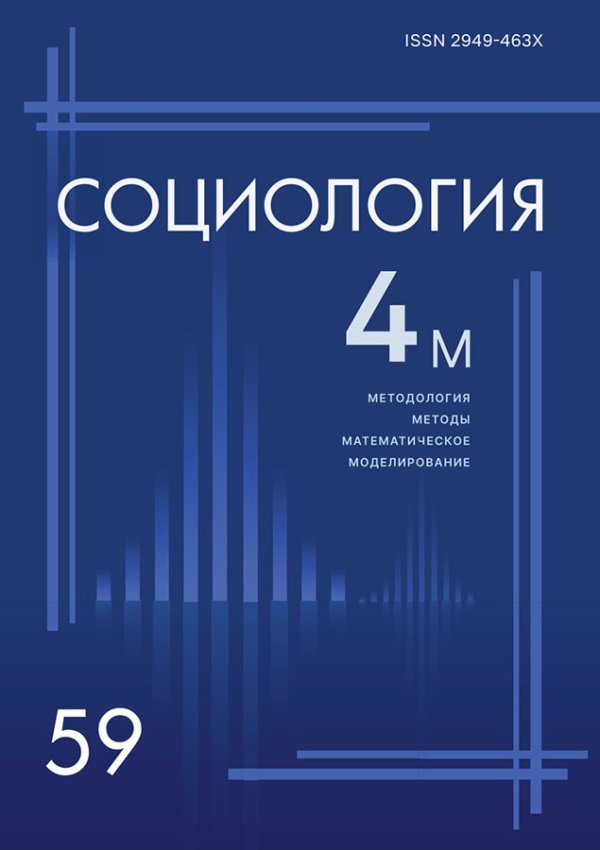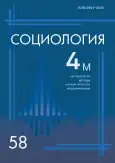No 58 (2024)
Editorial
Editorial
 7-9
7-9


Measurement in sociology
Information equivalence of two forms of the scale of identification with a social group
Abstract
 10-40
10-40


Qualitative methods in sociology
Draft Industry Standard for Focus Group Research
Abstract
 41-65
41-65


Translations
Case study method / Transl. by A. A. Mikhailov
Abstract
Social research in a given problem begins with the accumulation of material in the form of concrete and detailed cases. The case may be an individual, an institution, a community, or any group considered as a unit for study. Case study method emphasizes the total situation or combination of factors, the description of the process or sequence of events in which the behavior occurs, the study of individual behavior in its total social setting, and the analyses and comparison of cases leading to formulation of hypotheses. A case study of a delinquent boy is presented to illustrate the study of the behavior of an individual in terms of the complex of factors in which the behavior occurred.
 66-80
66-80


Social science experiments
Semantic differential method in familistic research
Abstract
 81-129
81-129


Consultations
How to choose an application for conducting online interviews? Methodical recommendations
Abstract
 130-157
130-157


Methodical digest
 158-167
158-167












